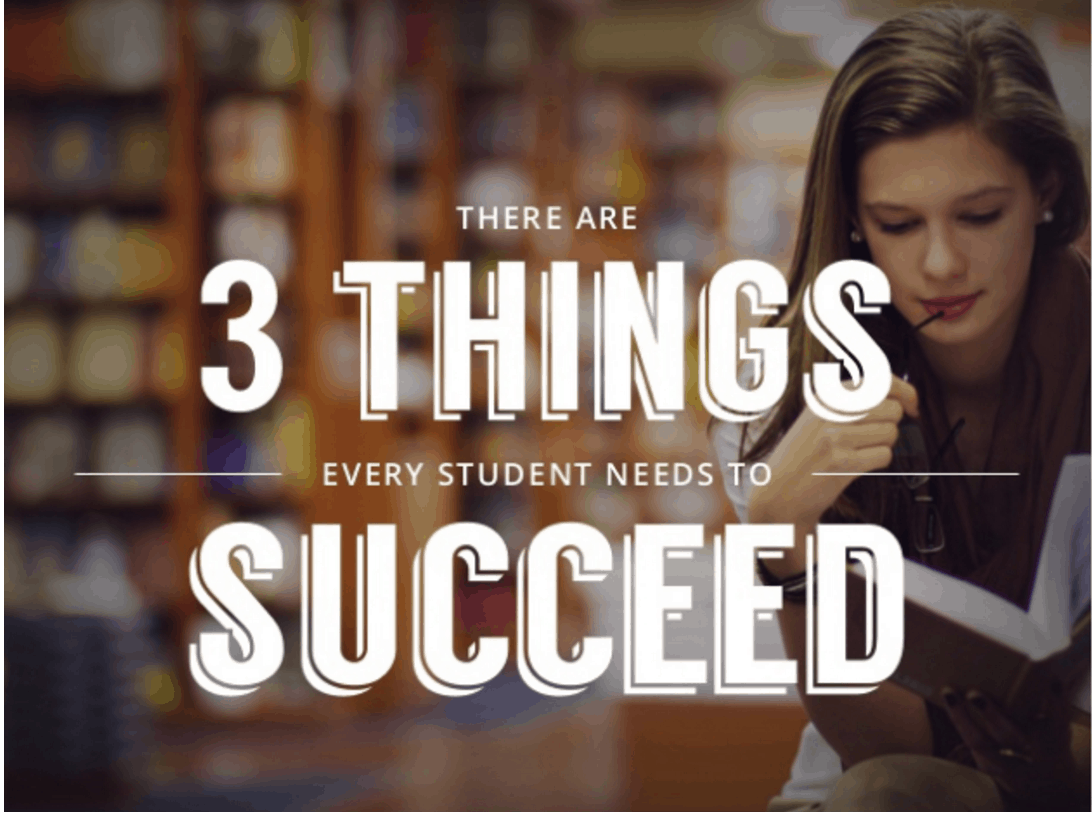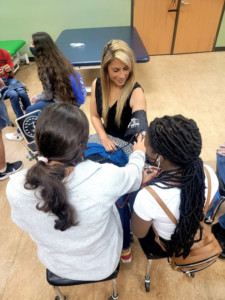Build A Relationship Strategy to Support Students In-Class and Out

When I saw the 23% on my first freshman Chemistry exam, I was pretty sure I was going to flunk out of engineering school. I was in a developmental math course (it turns out I was more football ready than college ready) and academically floundering.
My Chem prof told me I wasn’t smart enough to be an engineer. My girlfriend (now wife) told me she didn’t plan to hang out on glaciers so I may want to rethink my geology major (with an arctic focus). No network of support, no purpose, no path forward—my college and career success hung in the balance.
The tables turned at a career fair when a (football playing) alumni offered me a summer internship. It sounded great and turned out even better—I served as the owner representative on the environmental impact study of a West Virginia coal gasification plant. It was interesting, challenging and real responsibility.
I changed majors, connected with an advisor more interested in my success than in weeding me out, and had a clear path to graduation. While my classwork wasn’t very relevant, my advisor expanded my network and my summer jobs got even better and more lucrative. I graduated with an A- average and lots of job offers—a far cry from that freshman failure. For me, success was about finding my purpose, developing a path and connecting with people that cared.
I was lucky, but a key challenge before schools in the next two decades is as follows: how can we take luck out of the equation and ensure systematically that every student does with intention what I did serendipitously–find THEIR purpose, develop THEIR path and develop THEIR support network of people to support them to succeed in school and in life thereafter.
Lessons from New Secondary School
School networks are the most important innovation of the last 20 years in U.S. education. These purpose-built networks supported the development of about 4,000 new secondary schools designed around strong sustained adult relationships, a compelling purpose and a clear pathway to college and careers.
Nearly all of these schools featured a structural innovation—an advisory system where academic progress could be monitored, guidance could be offered and support services could be facilitated. Gaining agreement that these things matter is fairly trivial, the most challenging part was (and remains) designing the organizations to institutionalize these services.
Though not for the faint of heart, the marathon effort is worth it. These new schools and associated advocacy efforts helped boost the U.S. high school graduation rate from about 66% in 2000 to 82% at last count.
From informal to formal classrooms, from early education through professional development, from K-12 through HigherEd–learning is motivated and supported by relationships. Auckland researcher John Hattie identified that teacher-student relationships are one of the key factors in a student’s academic success.
America’s Promise incorporated relationships as the first of their five promises: “Caring adults are the centerpieces of children’s development. They serve as guides, caretakers and advisors who give positive and productive guidance throughout their development.”
Relationships Key to College Completion Rates
The new worst case scenario is attending college, accumulating debt and dropping out–and it’s becoming an epidemic. As an example of low on time graduation rates, only 10% of San Jose State students graduate in four years. One reason may be that there is one advisor for every 1,848 students.
 A Gallup study found that if college graduates had a professor who cared about them, made them excited about learning and encouraged them to follow their path (which Gallup called being “emotionally supported”), the odds of being engaged at their work more than doubled. However, only 14% of graduates recall having a professor that did all those things.
A Gallup study found that if college graduates had a professor who cared about them, made them excited about learning and encouraged them to follow their path (which Gallup called being “emotionally supported”), the odds of being engaged at their work more than doubled. However, only 14% of graduates recall having a professor that did all those things.
For the last seven years, Gunnar Counselman has been studying factors related to student success. He found that research confirms the importance of relationships and that students need to connect with people that care, develop a sense of purpose, and find or create a path for achieving their goals.
Counselman founded Fidelis Education in 2011 to build a learner relationship management system that incorporates a 3P framework –purpose, people and path — for institutions to analyze student success factors.
Purpose. How many of your students really know what their degree plan means for them and which ones don’t know? Of those that claim to know…do they really or do they just have a good story? If you, the educator, don’t know what they’re going for and why it matters to them…how will you help them? Why should they trust that the hard work will pay off if it’s not connected to any motivating purpose?
People. Which of your students have a strong personal support network of mentors from home, school or work? Which have positive peer relationships and have a real sense of belonging at your institution? Which have professional guides and strong relationships with their faculty advisors? If you don’t know, you have no hope of helping them fill in the gaps and reach higher.
Path. Which of your students feel like they’re on track to reach their goals? Do they truly believe that if they graduate, their chances will be better? Do they see themselves as masters of their own destiny, shaping their path? How many do, how many don’t and which are which?
Despite universal acknowledgement that these are important questions to ask, most schools don’t have access to reliable insights into which students have the 3 Ps and which do not, since the reality is most advisors and coaches are managing hundreds of students at a time.
Further, for many students, post-secondary education is the time they are defining for themselves and then having to manage the 3 Ps of their life. They are navigating new 3 P challenges: learning how to manage their time, having to seek out a new social circle and deciding what they want be and want to study–all while embarking on a new academic journey. As college graduation dropout rates continue to increase, it is important to focus on what we can do to provide students with all of the supports that they need.
The reality in most institutions now is that relationships between students and the adults who can support them (in both their academic goals and 3 P goals) are assigned randomly, without intention and hit-or-miss when it comes to quality.
Most higher education institutions have a customer relationship management system (CRM) that tracks prospects, a student information system (SIS) that tracks student enrollment data and a learning management system (LMS) that tracks content and assessments. Very few institutions have developed an intentional learning relationship management system for cultivating relationships and tracking out of class student supports.
The LRM category (some refer to it as Integrated Planning and Advising for Student Success or iPASS) remains an emerging category with the potential to solve critical problems in higher education like attrition and skills gaps. Through LRM, the Fidelis Education approach to out-of-class student support services offers a three-pronged approach with apps to overcome learning gaps, mentors and learning communities.
The five blogs in our “Getting Smart on Student Support Services” series will explore efforts to change that by highlighting lessons learned from LRM implementation efforts.
For more see:
- Moving Toward Learner-Centered Models in HigherEd
- Credential Reform: Technology and Changing Workforce Needs Will Drive Future of HigherEd
- The Primacy of Relationships
This post is a part of a blog series in the upcoming “Getting Smart on Out of Class Student Support Services” Smart Bundle produced in partnership with Fidelis Education (@FidelisEd). For more information, contact [email protected]. Join the conversation on Twitter using #OutOfClassSupport.
Stay in-the-know with all things EdTech and innovations in learning by signing up to receive the weekly Smart Update. This post includes mentions of a Getting Smart partner. For a full list of partners, affiliate organizations and all other disclosures please see our Partner page.







Angela Maiers
This is 100 percent spot on Tom! Passion Driven/Purpose Driven education is no longer a nicety; but rather an essential necessity for success and fulfilment. We are working hard to help teachers and schools operationalize these often elusive and ambiguous principles. I would love to connect and share the extraordinary progress that has been made in schools across the country. Many of their stories of hope and transformation can be found at Choose2Matter.org Keep up the fantastic work. It Matters. You Matter. Angela Maiers (@angelamaiers)